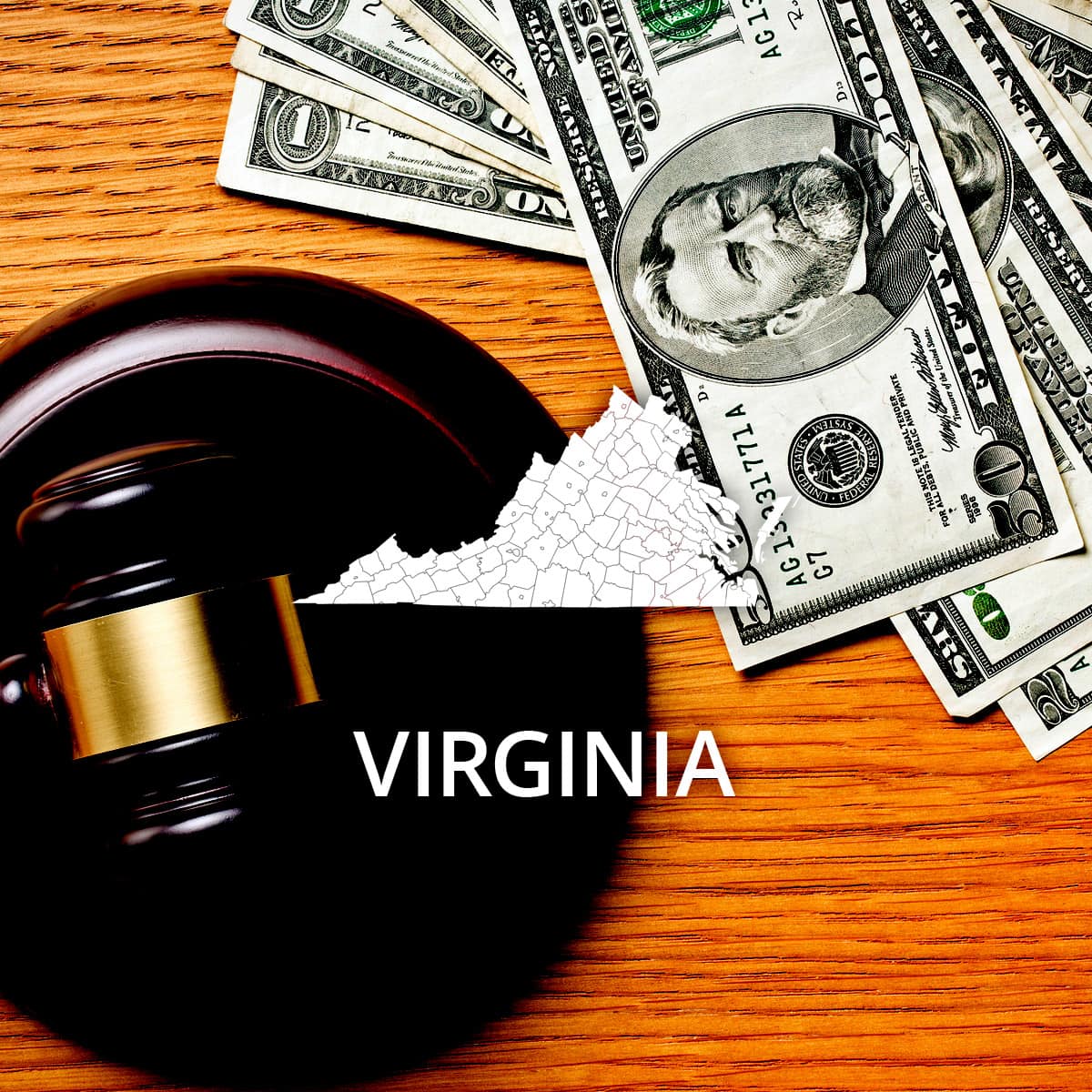 Multiple Bankruptcies: How Often You Can File One?
Multiple Bankruptcies: How Often You Can File One?
Table of Contents
 How to File Bankruptcy in Virginia
How to File Bankruptcy in Virginia
 The State of Virginia has two federal court districts where U.S. Bankruptcy courts are located: the Eastern District and Western District. Bankruptcy is a matter of federal court and regulated by federal statutes. Although bankruptcy can be a good option for anyone in over their head in debt and financial obligations, there are repercussions. Bankruptcies can remain on your credit report for up to 10 years, affecting your ability to obtain new credit.
The State of Virginia has two federal court districts where U.S. Bankruptcy courts are located: the Eastern District and Western District. Bankruptcy is a matter of federal court and regulated by federal statutes. Although bankruptcy can be a good option for anyone in over their head in debt and financial obligations, there are repercussions. Bankruptcies can remain on your credit report for up to 10 years, affecting your ability to obtain new credit.
It is largely suggested to obtain counsel when filing for bankruptcy, but individuals can file pro se, or without an attorney as well.
 Filing for Chapter 7, Chapter 13, and Other Types of Bankruptcies in Virginia
Filing for Chapter 7, Chapter 13, and Other Types of Bankruptcies in Virginia
Individuals have the choice of filing either Chapter 7 or 13 bankruptcy. Chapter 7 allows the debtor to liquidate their assets and pay down debt, and unsecured debts are typically discharged by the court. Taxes and student loans are examples of unsecured debts which cannot be discharged.
Chapter 13 allows debtors to reorganize debt and maintain ownership of property such as houses and cars. Creditors allow for lower payments and longer payment periods to enable the debtor to catch up on their debts.
Chapter 12 is the type of bankruptcy filed by professional agricultural workers such as fishermen and farmers. Chapter 11 is filed by businesses who wish to reorganize their debts and maintain ownership of the business.
 Steps to Filing Bankruptcy
Steps to Filing Bankruptcy
Federal law requires debtors to attend a required credit counseling course within six months prior to filing for bankruptcy. The course administrator will provide a certificate of completion that can be presented to the court clerk's office upon filing.
Initial filing fees are a few hundred dollars for Chapter 7 and 13, and upwards of $1500 or more for Chapter 11. Chapter 7 debtors can ask that fees be waived or request a reduced payment plan, but they still must be completed on time or risk dismissal of the case.
A series of schedules, documents and identifications must be presented to the clerk's office for the initial court hearing. Deadlines are firm on these documents and failure to adhere to them can also result in a case dismissal. Social Security cards, tax returns, balance sheets, account statements and a record of all debts and sources of income must be submitted. Chapter 7 petitioners must also meet a means test to prove they cannot afford their financial obligations.
The court will schedule a meeting of creditors with the debtor and court trustee to determine details of the final bankruptcy agreement. Debts may be discharged or reorganized based on the debtor's ability to pay and answers to key questions from the creditors. The agreed-upon schedule is then submitted to the court for approval.
Before discharging a bankruptcy, debtors must also attend a financial management course from an approved local vendor and provide proof of such to the court.
Additional information and bankruptcy forms can be found at https://www.uscourts.gov/forms/bankruptcy-forms or RecordsFinder.com Court Forms Section.
 Location Specific Information
Location Specific Information
The Eastern District of Virginia U.S. Bankruptcy Court has locations in Alexandria, Norfolk, Richmond and Newport News. The Western District of Virginia has courts in Roanoke, Lynchburg and Harrisonburg.




